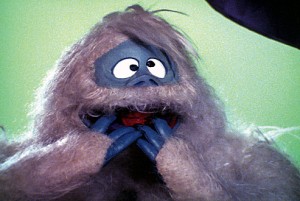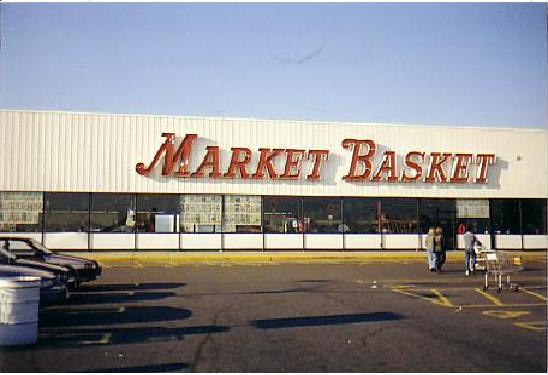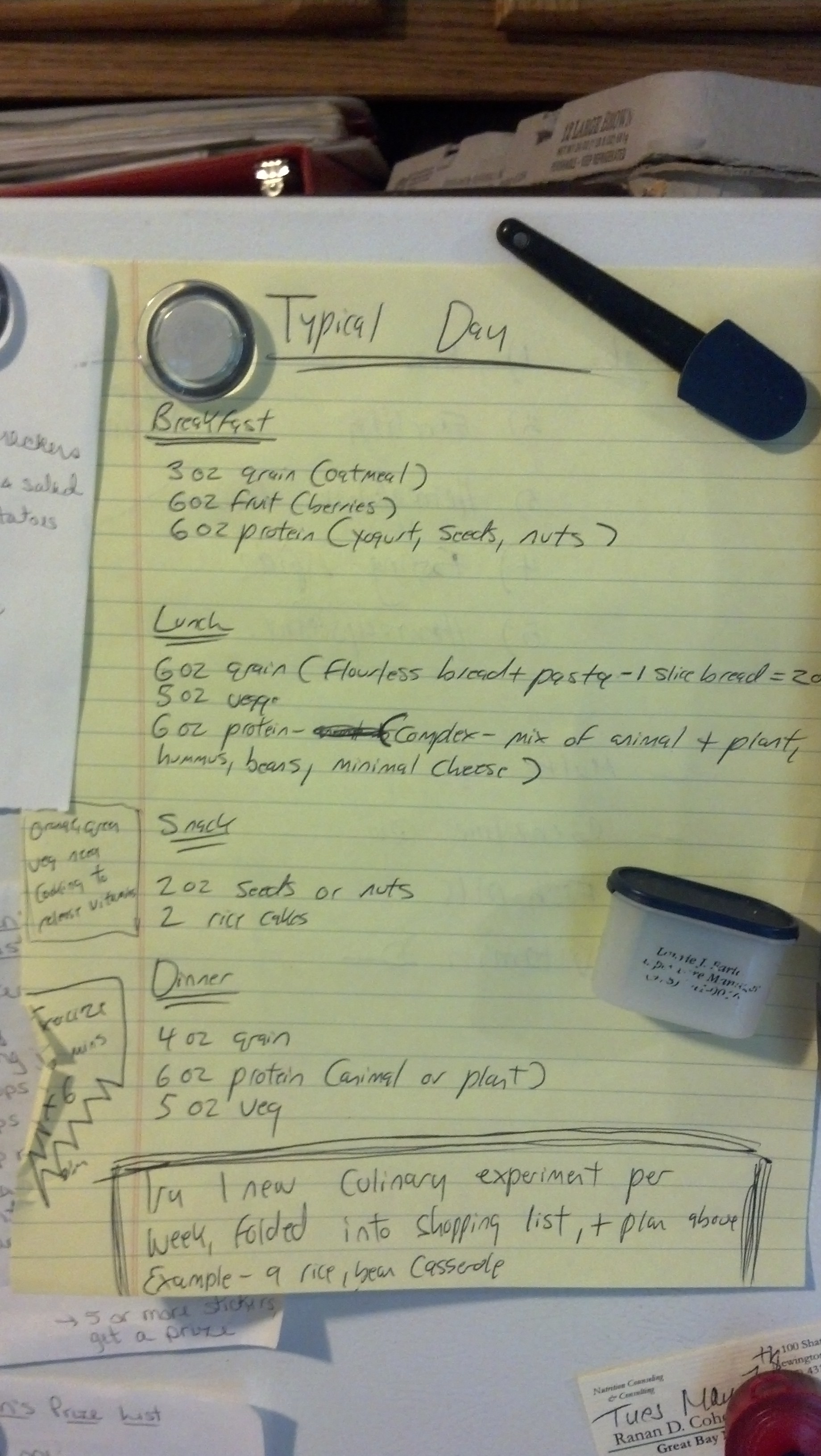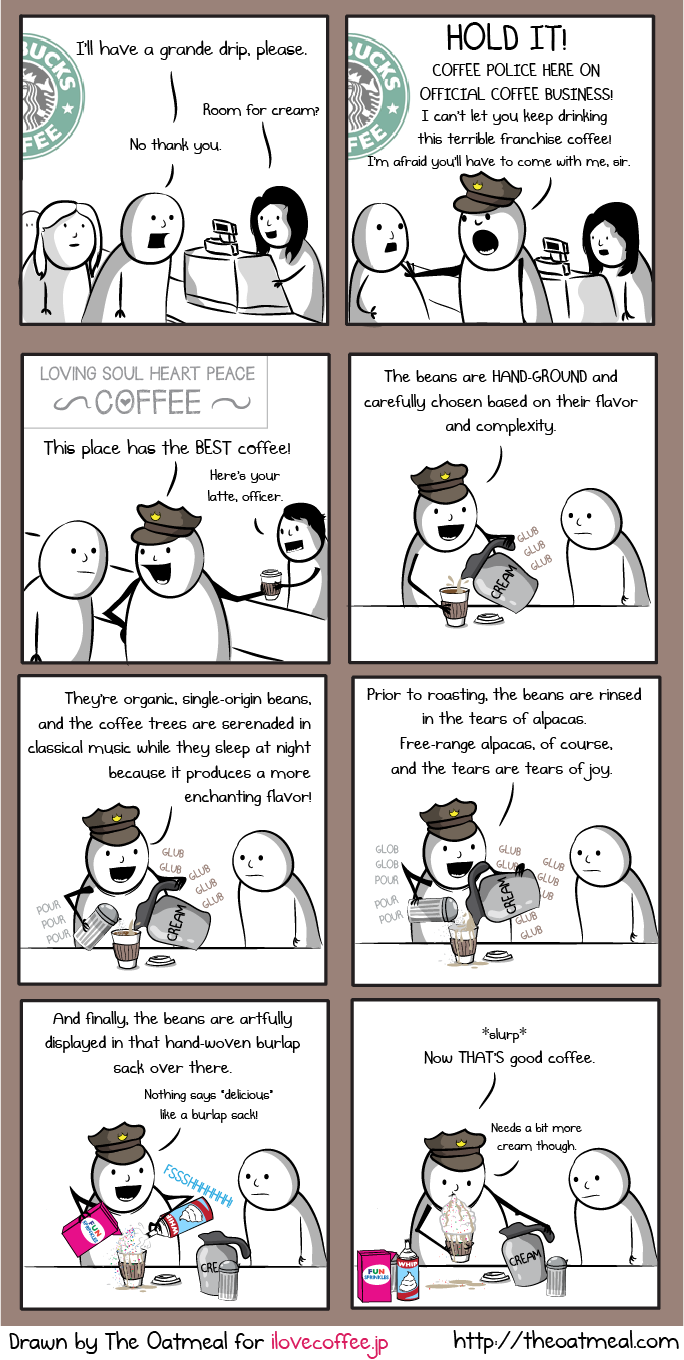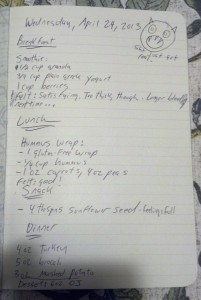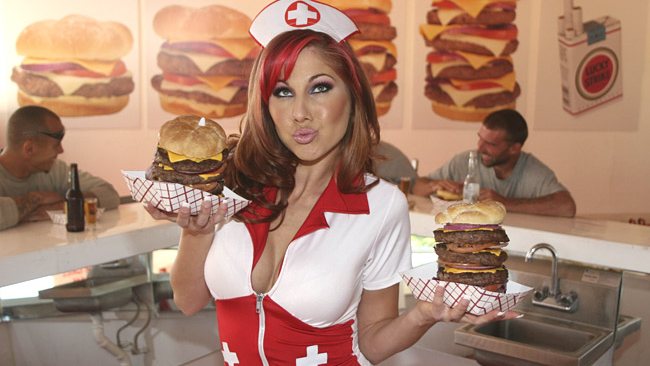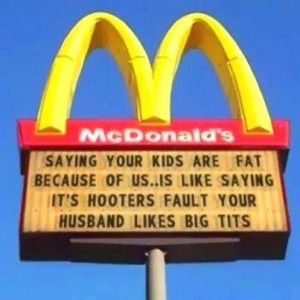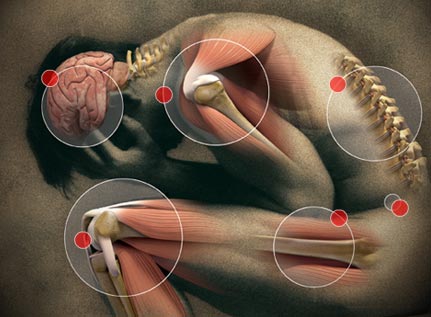My recovery program for compulsive binge eating hasn’t been right lately. This is where I come clean about something many go through after extended periods of abstinance and sobriety.
Mood music:
http://youtu.be/qHal84S_XkI
I haven’t been to many OA meetings lately.
I haven’t called my sponsor in awhile.
I was getting to a point a couple weeks ago where I realized I was also getting sloppy with the food. It’s always the little things you get reckless about: Instead of the 4 ounces of protein I should be having during a meal, I’d let the scale go to 5. I’d slack on the vegetables and sneak in more grain. This is where the relapse starts.
For some of you this isn’t easy to understand. An out-of-control relationship with food still isn’t accepted as a legitimate addictive behavior in many quarters, and one of my goals in this blog has been to raise awareness and understanding.
A lot of my earliest posts preached the Gospel of the 12 Steps and Overeater’s Anonymous. I had reason to be so fanatical: OA helped me break a horrible binge cycle that I hadn’t been able to stop before.
It owned me until I started going to OA meetings, got a sponsor and started to live the 12 Steps OA and AA use to give addicts the spiritual fortitude needed to break free.
I still depend on the program today, but a big problem has gotten in the way: I’ve started to rebel against a lot of the rules. That’s typical addict behavior. When life gets a little rough, we start looking for excuses to fall back to old, self-destructive patterns. My family has experienced difficulties this past year (my father’s stroke, etc.), and that has made it difficult for me to stay squeaky clean.
At one point I started smoking again. My wife caught me and I stopped. But I was pissed, because I felt entitled to do something bad for me. People like me are stupid but common: When we want comfort, we do the things we know will kill us in the end. Stuffing cocaine up your nostrils will eventually give you cardiac arrest. Weeks-long binges, centered around $40-a-day purchases in the McDonald’s drive-thru, will do the same. The latter may just take longer.
I also started to give the halls of OA the stink eye because I was starting to find a lot of people too fanatical about it. There are people in the program who will tell you that you’re not really abstinent if your program doesn’t look exactly like theirs. One person told me the program comes before everything and anyone else. I bristled over that, because in my mind my family comes before everything else.
True, without abstinence and sobriety I can’t be a good husband and father. But I can’t be those things if I’m running off to four meetings a week and making six phone calls a day to others in the program, either.
I’ve also had the sense that people in these meetings love to hear themselves talk too much and too often.
I’m ashamed to say that, because I think these people are doing exactly what they should be doing. I’m just tired of hearing it is all.
I don’t think I’m rotten for feeling this way. I’m trying to figure out where this program truly fits in my life, and I think these are honest reflections on my part.
If I’ve learned anything in life, it’s that you can’t do the same exact thing forever and expect the process to stay fresh and helpful. Like a tire that’s rolled thousands of miles, a recovery program can wear down until you get a blowout.
I do have a few things to cheer about: I haven’t suffered a full-blown binge relapse and my weight has remained steady. Clothes still fit. I still climb hills without spitting out a lung halfway up. I have absolutely no interest in hitting the McDonald’s drive-thru or stuffing my coat pockets with candy bars and cake in the gas station snack aisles.
I haven’t caved to alcohol either, and believe me, there are times I’ve wanted to. Alcohol was never the monkey on my back that food is. But I used it heavily as a crutch at one point.
I brought all this up with my therapist at last week’s appointment. I lamented that I can’t spend all week in 12-Step meetings and still have a life. I complained that people simply trade their first addiction in for a new one — the program itself.
My therapist noted that some people have to do that, otherwise they will certainly binge and drink again. It’s not a choice for them.
So here I am, plotting my next move.
I already tightened up the food plan. I’m being strict in weighing out the food. I’ve all but eliminated dairy from my diet, because I was starting to use it as a crutch. I’m walking regularly again. I’m hitting at least one meeting a week.
Today, I’m calling my sponsor to come clean with him and see if he is still in fact my sponsor. It’ll be a good conversation whatever happens, because I relate to this guy on many levels.
It’s time to look at the rest of my program and honestly assess what I need to be doing. A “program before everything” approach isn’t what I want right now. My life is too busy for that. I need my program, but I need it in its proper place.
I need to go to more meetings, though three or four a week ain’t gonna happen.
I need to talk to my sponsor a lot more often, though not daily like some people do. In the very beginning I needed that. Now it just irritates me, because I usually have work to do right after a call, and some mornings I simply don’t have anything to say to people on the phone.
I know I still need the 12 Steps, meetings, a sponsor and a rock-solid food plan. But my needs aren’t the same as the next person, and that should be ok.
Some in the program will read this and suggest I’m pining for the easier, softer way that doesn’t really exist in an addict’s world.
I don’t feel I am.
I consider this my search for the more realistic, honest way.


